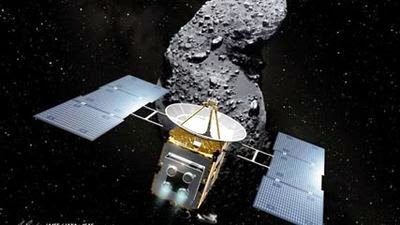As befits a cafe on Mars, here's a post about food.
Astronauts and Marstronauts who are away from sources of Earth-grown food may subsist on dehydrated food, packaged meals and so on, but as the engineer involved in the following video (see link below) points out, the sensory experience of eating real food adds a huge amount to our lives. We take it for granted, but travellers to Mars will probably start longing for something fresh after a few weeks or months. A graduate team at the University of Colorado have been developing a kind of automated plant grower and a robot plant-tender. Don't view this unless you like interesting things.
Meet the Gardening Robot
If such devices are to be used on Mars, in the initial stages of a colony, I would want to ask:
- Does the complexity of the electronics and mechanics in SPOT and ROGR justify the potential gain to the colony? The more complex things are, the harder they are to fix. Many spare parts would be required. Couldn't the colonists simply aim to bring or make their own soil, use some basic temperature & humidity data loggers, and hand-tend their gardens?
Beyond that, agriculture is not my speciality, but I'm sure that researchers such as those in the excellent video have been thinking through the details.
But as soon as they've worked out the details and are harvesting their first crop of Martian chili peppers, I'd like to reserve one kilo for use at the Red Planet Cafe.
Both images extracted from Motherboard video presentation.
Astronauts and Marstronauts who are away from sources of Earth-grown food may subsist on dehydrated food, packaged meals and so on, but as the engineer involved in the following video (see link below) points out, the sensory experience of eating real food adds a huge amount to our lives. We take it for granted, but travellers to Mars will probably start longing for something fresh after a few weeks or months. A graduate team at the University of Colorado have been developing a kind of automated plant grower and a robot plant-tender. Don't view this unless you like interesting things.
Meet the Gardening Robot
If such devices are to be used on Mars, in the initial stages of a colony, I would want to ask:
- Does the complexity of the electronics and mechanics in SPOT and ROGR justify the potential gain to the colony? The more complex things are, the harder they are to fix. Many spare parts would be required. Couldn't the colonists simply aim to bring or make their own soil, use some basic temperature & humidity data loggers, and hand-tend their gardens?
Beyond that, agriculture is not my speciality, but I'm sure that researchers such as those in the excellent video have been thinking through the details.
But as soon as they've worked out the details and are harvesting their first crop of Martian chili peppers, I'd like to reserve one kilo for use at the Red Planet Cafe.
Both images extracted from Motherboard video presentation.

























